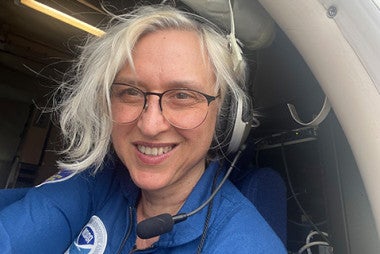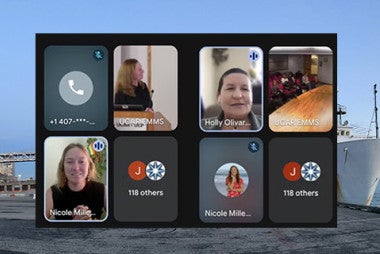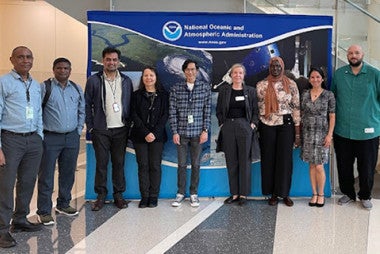Fall Updates: US CLIVAR
US Climate Variability and Predictability (CLIVAR) is a national research program with a mission to foster understanding and prediction of climate variability and change on intraseasonal-to-centennial timescales through observations and modeling with emphasis on the role of the ocean and its interaction with other elements of the Earth system.
Optimizing Ocean Observing Networks for Detecting the Coastal Climate Signal workshop brought together operators and users of coastal ocean observing systems to identify key science issues in detecting and responding to coastal climate change in the coming decades. Participants, 45% of whom were students and early career scientists, discussed a variety of topics including regional ocean observing challenges and needs, coastal resource management, decision-making, and national coordination of an improved optimizing observing system. Participants worked collaboratively to draft recommended actions that accelerate the co-design and optimization of observing systems for detecting the coastal climate signal by integrating knowledge, data, and approaches. Recommendations from the workshop will be shared with the IOOC Coastal Climate Signal Task Team, which is supported by the UCAR Center for Ocean Leadership.

PPAI Panel Meeting group photo and in front of the Science on the Sphere display at NASA PSL.
US CLIVAR hosted its biennial Predictability, Predictions, and Applications Interface Panel (PPAI) and Predictability, and Predictions, and Applications Interface (PSMI) Panel meetings this summer, along with the annual Scientific Steering Committee (SSC) Meeting. The US CLIVAR Phenomena, Observations, and Synthesis (POS) Panel meeting is upcoming.
- The PPAI Panel Meeting took place in Boulder, CO, from August 15-16. Sessions include climate information for all, communicating uncertainties in forecasts and predictions to improve decision-making, machine learning in climate prediction, and predictability in a changing climate, among others. This meeting concluded at NOAA PSL with a tour and discussions.
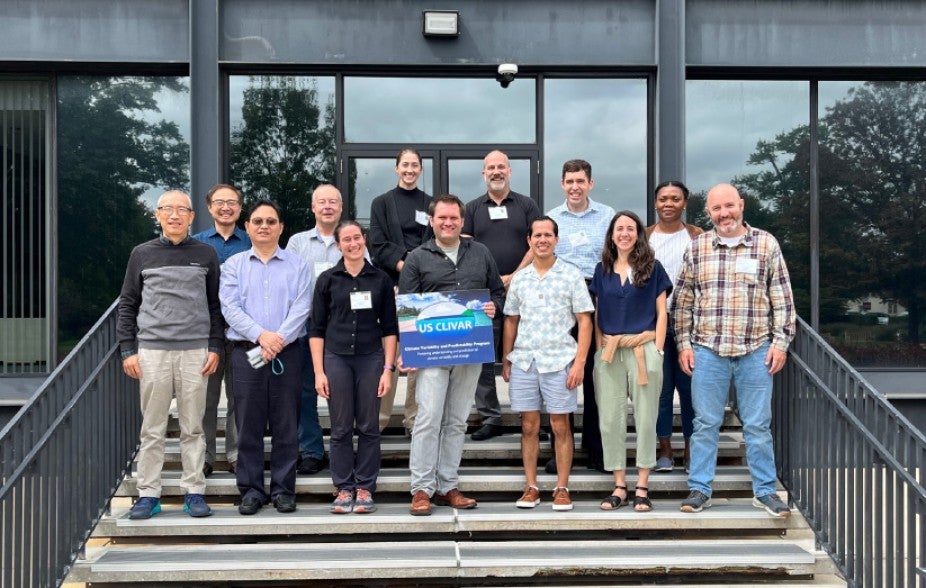
PSMI Panel Meeting
- The PSMI Panel Meeting took place at GFDL in Princeton, NJ, from September 5-6. Sessions include big data and model-process study intercomparisons, bringing together large eddy models and field data to build a parameterization, Climate Predictability Tool (CPT) planning, and continuity of the long-term climate observational record, among others.
- The SSC Meeting took place at the NSF building in Alexandria, VA, from August 19-20. At this meeting, US CLIVAR SSC members convened with scientific experts and Inter-Agency Group (IAG) representatives from organizations including NOAA, NASA, DOE, NSF, and ONR to discuss agency announcements, priorities, and budgets. Sessions at this meeting included agency updates, international CLIVAR updates, Marine Carbon Dioxide Removal (mCDR), Climate Process Teams (CPTs), tipping points, and CMIP 7 status, among others.
- The upcoming POS panel meeting will take place September 31-October at Caltech and NASA JPL in Pasadena, CA. This meeting will explore the topics of the global carbon cycle, integrating observing systems and strategies, Earth system and coupled data assimilation including tools from Machine Learning (ML), and climate variability and the global water/energy cycle, among others.
All of these meetings included (or will include) local experts and inter-agency group managers in the panel discussions and presentations. These meetings are crucial to the panels and SSC not only to review accomplishments from the previous years, but to discuss the most pressing scientific needs in climate variability prediction and climate change projections and plan scientific foci and community engagement activities for the year ahead. Learn more about the panels here.
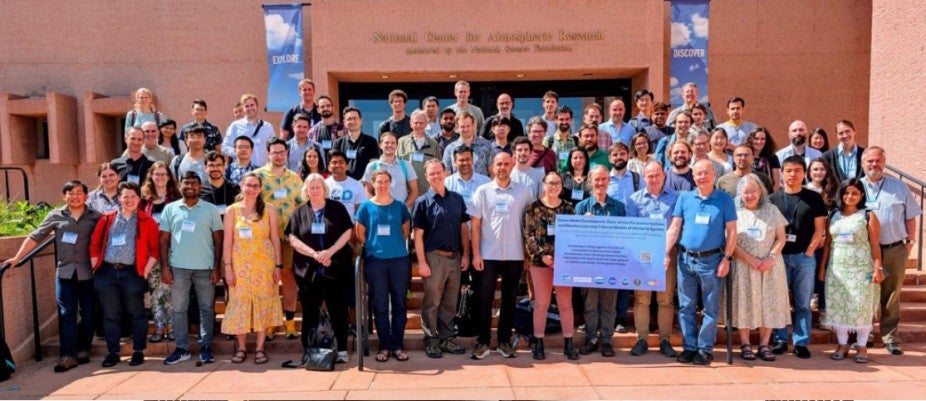
OMDP/COMMODORE participants in the workshop group photo
US CLIVAR hosted the joint CLIVAR Ocean Model Development Panel (OMDP) and COMMODORE Workshop on Ocean Model Development, Data-driven Parameterizations, and Machine Learning in Ocean Models of the Earth System from September 9-12 at the NSF NCAR Mesa Lab. This international meeting brought together scientists from the ocean modeling, ocean processes, and machine learning communities to review advances in dynamical cores and parameterizations as well as to explore the opportunities, successes, and challenges of applying data-driven methodologies and machine learning techniques to the development and analysis of numerical ocean models. Extracurricular activities included a pre-workshop gathering, an Early Career meet-up, and a group hike through Chautauqua. A remarkable 63% of attendees were students or Early Career (EC). To encourage participation from these attendees, the workshop organizers carved out time specifically for student and EC input during the discussion periods.
Micro2Macro: Origins of Climate Change Uncertainty
The "Micro2Macro: Origins of Climate Change Uncertainty" workshop brought an incredible group to the University of Wyoming in Laramie, with over 150 participants dedicated to enhancing our process-based understanding and strategically reducing climate projection uncertainty over decadal time scales.
The workshop explored four innovative frameworks focused on improving climate models, understanding uncertainty in remote sensing, leveraging machine learning, and planning insightful in situ laboratory measurements. Participants also enjoyed a networking event at the Donald L. Veal Research Flight Center, complete with an exciting tour of the next-generation King Air Atmospheric Research Aircraft!
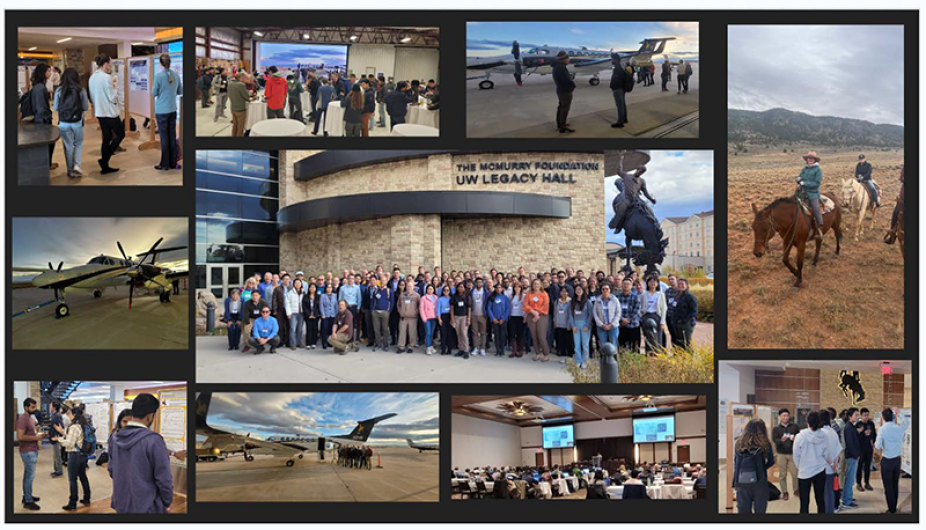
Photo montage from the Micro2Macro Workshop.

